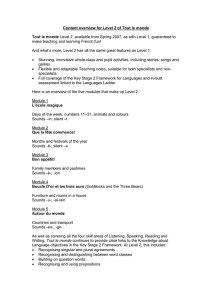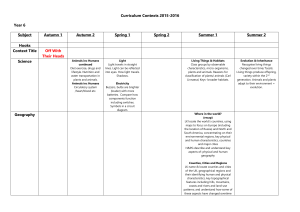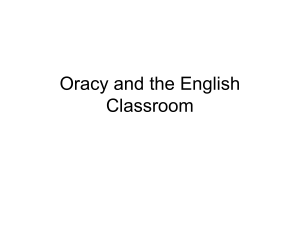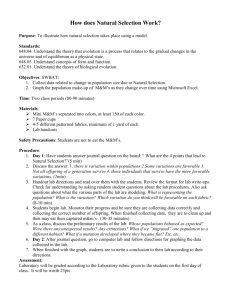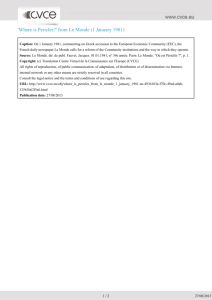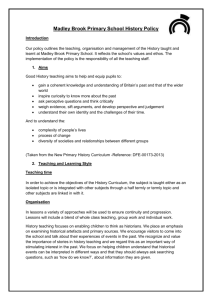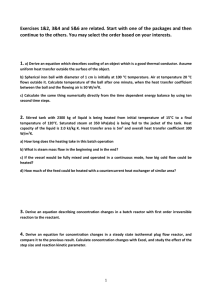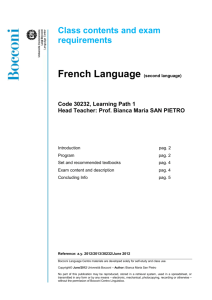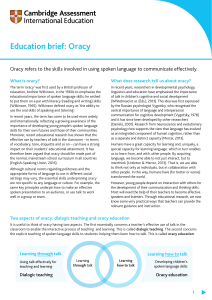Foreign Languages
advertisement
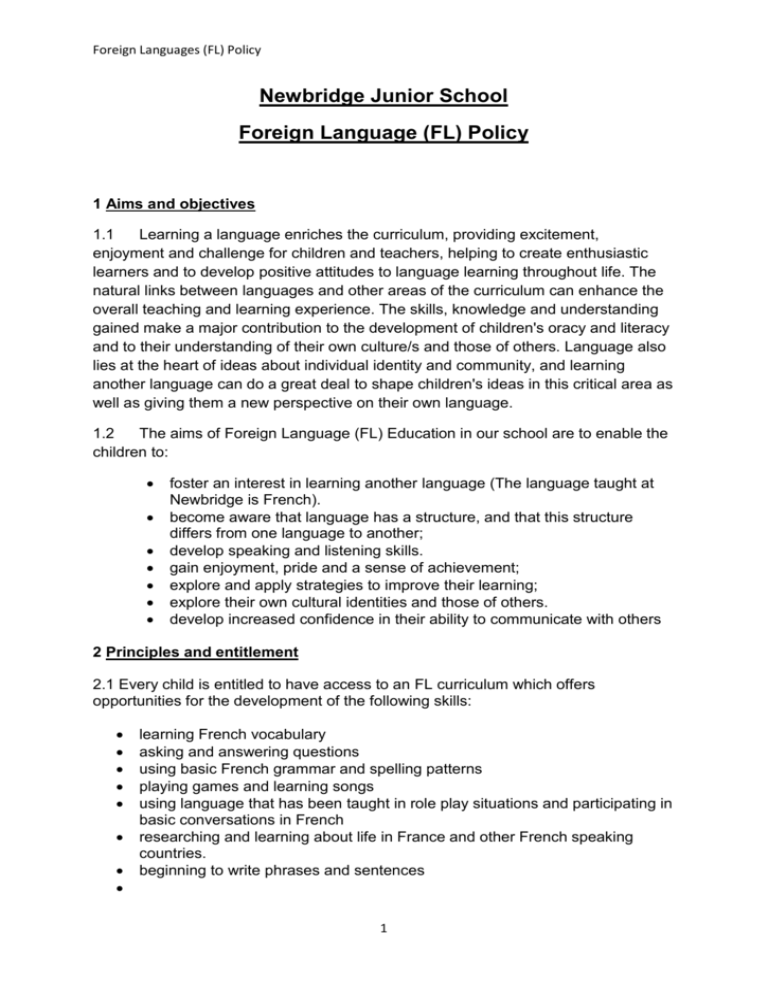
Foreign Languages (FL) Policy Newbridge Junior School Foreign Language (FL) Policy 1 Aims and objectives 1.1 Learning a language enriches the curriculum, providing excitement, enjoyment and challenge for children and teachers, helping to create enthusiastic learners and to develop positive attitudes to language learning throughout life. The natural links between languages and other areas of the curriculum can enhance the overall teaching and learning experience. The skills, knowledge and understanding gained make a major contribution to the development of children's oracy and literacy and to their understanding of their own culture/s and those of others. Language also lies at the heart of ideas about individual identity and community, and learning another language can do a great deal to shape children's ideas in this critical area as well as giving them a new perspective on their own language. 1.2 The aims of Foreign Language (FL) Education in our school are to enable the children to: foster an interest in learning another language (The language taught at Newbridge is French). become aware that language has a structure, and that this structure differs from one language to another; develop speaking and listening skills. gain enjoyment, pride and a sense of achievement; explore and apply strategies to improve their learning; explore their own cultural identities and those of others. develop increased confidence in their ability to communicate with others 2 Principles and entitlement 2.1 Every child is entitled to have access to an FL curriculum which offers opportunities for the development of the following skills: learning French vocabulary asking and answering questions using basic French grammar and spelling patterns playing games and learning songs using language that has been taught in role play situations and participating in basic conversations in French researching and learning about life in France and other French speaking countries. beginning to write phrases and sentences 1 Foreign Languages (FL) Policy 3 Teaching and learning 3.1 Teachers will ensure that: French is taught every week. Children will be given opportunities to speak and listen (Oracy), read and write (Literacy) and gain insight into other cultures and traditions (Intercultural Understanding). They are using the Tout le Monde scheme of work for French backed up by the supporting materials. Children are introduced to another language (French) in a way that is enjoyable and fun. where possible language learning is embedded into daily class routines (e.g register greetings, classroom commands etc) 3.2 We believe that good classroom practice will involve a wide range of teaching and learning strategies, which take different learning styles into consideration. There will be evidence in the learning environment of: progress in the children’s learning, specifically related to languages skills (on the walls in conversation, in their home learning) across the full range of learning- oracy (Speaking and Listening), Literacy (Reading and Writing) and Intercultural Understanding FL resources used to support children’s understanding of key concepts (flashcards with new vocabulary and phrases, bilingual dictionaries and posters) French being used as part of classroom routines (e.g class signs, name tags) where possible, cultural artefacts and realia (maps, flags, money etc from French-speaking countries) appropriate to the current topic being learnt. the safe use of resources 4 Planning 4.1 Foreign Language Education is the planned provision of all opportunities that contribute to pupils’ development of communication skills in a foreign language as well as their intercultural understanding. This will include targeted FL lessons, as well as specific opportunities in other subjects across the curriculum for FL skills to be embedded. 4.2 The planning of FL will be monitored by the FL leader. The planning will follow National Curriculum requirements (a long term plan has been produced by the FL leader). All class planning should relate to the school’s long term planning and be based on the objectives as detailed in the Tout Le Monde French scheme of work. This will ensure continuity and progression throughout the key stage. 2 Foreign Languages (FL) Policy 5 Leadership and management 5.1 It will be the responsibility of the FL leader to have an overview of the French taught throughout the school and to report back to the Head Teacher on a regular basis in order to improve teaching and learning. Year leaders will be responsible for feeding back to the FL leader on a regular basis. 5.2 The FL leader will be responsible for observing the quality of teaching and learning on a regular basis during French lessons. Monitoring of the children’s work will also play an important role in the monitoring process. This will be done through book scrutinies as well as pupil interviews. 6 Assessment and recording 6.1 Teachers assess children’s work in FL in three phases. The short-term assessments that teachers make as part of every lesson help them to adjust their daily plans. They match these short-term assessments closely to the teaching objectives. Written or verbal feedback is given to help guide children’s progress. Children are encouraged to make judgements about how they can improve their own work. 6.2 Teachers use medium-term assessments to measure progress against the key objectives, and to help them plan for the next unit of work. 6.3 The subject leader will take an active role in disseminating best practice and making recommendations for staff development. 8 Resources 8.1 A copy of the Teachers guide for the appropriate level of the Tout le Monde scheme of work should be held by each year leader. Each class teacher has access to the online Tout le Monde resources. Additional resources and reference materials will be held by the FL leader. Date of Policy: January 2015 Gina Reynolds. 3
